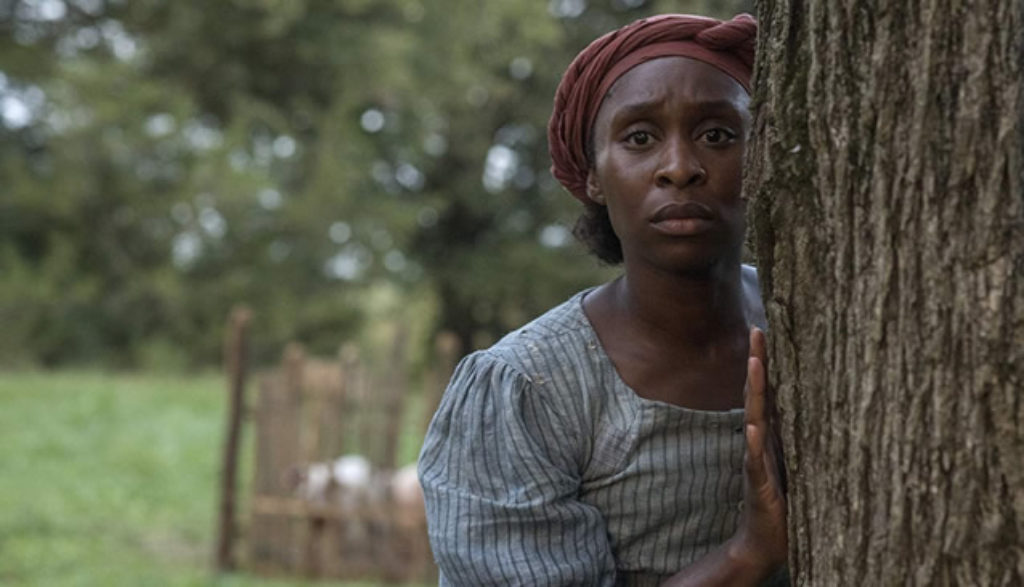
Unruly and untamed.
That’s what they called Araminta “Minty” Ross. Born into slavery in 1820, in Maryland, the woman who’d later take the free name of Harriet Tubman knew evil from a young age. She was abused, manipulated and forced to watch as some of her own siblings were sold into slavery, far away from her and her family.
And just when she thought emancipation was near (due to her impending nuptials with a free man named John Tubman), Harriet was brutally reminded that she would never see freedom and that all her future children would be destined for a life of captivity.
But such threats have a curious way of sparking rebelliousness. And Harriet Tubman was not a woman who was willing to submit to permanent enslavement.
Instead, she ran from her slave masters in Maryland, journeying more than 100 miles to the free land of Pennsylvania. There, she found her true self as a liberated woman. But as she began tasting the fruit of freedom, she knew she couldn’t keep it to herself.
Soon, Harriet joined the Anti-Slavery Society in Philadelphia and later became a conductor for the Underground Railroad, obeying the voice of God and liberating hundreds of slaves, boldly proclaiming her life’s motto:
“I’ma be free or die.”
Harriet Tubman, as this film portrays so beautifully, was a force to be reckoned with. The film tells Harriet’s story and shows that she was fearless, intelligent, bold, resilient and utterly selfless. In one scene, leaders of the Underground Railroad wrestle with fear and confusion over how to free slaves, but Harriet boldly declares that she will “give every last drop of blood in my veins to free them.”
Harriet made history not only for fighting her way to freedom, but for repeatedly risking her life to lead hundreds to freedom with her. Later, she would even participate in the Civil War as a a spy for the Union Army and was one of the few women in U.S. history to lead an armed expedition.
But before all of that, the film shows that Harriet’s spark for freedom and justice began early on and was fanned into flame by a few other important people.
One such person was Marie. As the owner of a boarding house in Pennsylvania for former slave women, Marie takes Harriet under her wing. She encourages Harriet to live out her God-given calling and teaches her how to hold her head high as a free woman. She helps Harriet to know her value and self-worth, spurs her onward to free slaves and gives her a gun to protect herself.
William Still, leader of the Anti-Slavery Society in Philadelphia, also helps and encourages Harriet when she first comes to Philadelphia, teaching her to “walk like you got the right to.” Eventually, William introduces Harriet to the Underground Railroad, into which she’s quickly inducted as a conductor.
As Harriet journeys toward freedom, many people help her along the way, encouraging her, giving her lodging and shelter and, eventually, bringing her to the Pennsylvania border. A former slave-turned-tracker stops helping white slave owners catch slaves and instead begins to help Harriet bring souls to freedom.
Among those Harriet risks everything to free are several members of her own family. And Harriet’s fierce commitment and determination, as well as her spiritual devotion, convict a young, deceitful tracker man named Walter to help her. Walter’s character changes for the better, and he helps Harriet at several critical junctures in the story.
Harriet is a deeply spiritual woman who relies on God throughout the entire film for direction, survival and hope. It’s clear that Harriet has been raised by her parents in the faith. (Her father is free, her mother is still a slave). As a young girl, Harriet began to receive spiritual visions, or premonitions, that forwarned her of the danger to come and taught her how to avoid harm. At times, they come in the form of dreams as she sleeps. Other times, Harriet feels them coming on and slips into a trance-like state in which she experiences the mystical directives. Harriet uses these visions from God to lead herself, and her people, to freedom.
Harriet’s connection to God is so strong that many fear her potent faith, as it pushes them into uncomfortable territory and requires that they take big leaps of faith as well. Harriet’s own brother nearly calls her insane until he sees that her visions are true and that she does indeed hear from God. In another conversation, Marie tells Harriet that perhaps one of the reasons she’s single is because there is no one on her spiritual level.
“What’s a man to a woman touched by God?” Marie asks rhetorically. Harriet then describes the way that she hears God’s voice (that it’s both soft and firm). Harriet constantly prays for direction and hope, and she’s quick to tell others, “I walk with the Lord.” But she’s not afraid to be honest before God and cry out to him with questions amid her own suffering and moments of fear and doubt.
Slave masters used the Bible to manipulate, abuse and control their slaves. A man named Gideon, the hardhearted plantation owner who grew up with Harriet and who now “owns” her, tells Harriet “suicide is a sin against God” and against slave owners. He manipulatively tries to lure her back into slavery and abuse. Similarly, Gideon and his family hold mandatory church services for their slaves where the local black reverend, a now freed man, uses Colossians 3:22 to make the case that slavery is valid and biblical. (The reverend publicly pretends to support slavery in his exhortations to slaves to obey their masters. But it’s all a cover for what he’s really doing: secretly helping slaves escape to freedom.)
Negro spirituals, songs used to describe the hardships of slavery and to give hope, are sung throughout the entire film. Harriet especially uses them to summon slaves to freedom. She’s later given the name “Moses” by frustrated plantation owners as she frees hundreds of slaves, just as Moses delivered the Egyptians out of the hands of Pharaoh.
Harriet tells her former slave owner, Gideon, that he will die for “the sin of slavery” and says, “God don’t mean people to own people.” Harriet’s sister calls Gideon’s father “the devil” after he sells her children into slavery. A reverend tells Harriet to forsake fear, to cling to God and trust in God’s leading.
Once, Harriet undresses to bathe and we see her horribly scarred back from behind. A woman reveals a brand on her upper chest by pulling her dress down to reveal the wound. A few men are also seen scarred and shirtless. Harriet’s dress gets torn in a way that’s mildly revealing.
There’s a reference to Gideon, Harriet’s former owner, having sex with prostitutes. Gideon and a violent former slave, Bigger Long, make crude references to having sex with numerous women, including “white whores.”
Harriet is devastated when she learns that her husband, John, has married another woman (after believing Harriet dead) and is expecting a child with her. Harriet and her husband kiss multiple times, but she leaves him after she finds out he now has a second wife.
Harriet asks God to “strike down” her slave master, who’s an evil man. Ironically enough, the slave master dies the very next day; his young son, Gideon, believes that it is Harriet’s fault. Harriet is later threatened by Gideon. He makes it clear that if Harriet is caught (as she’s now free), that she will be tortured, tarred and torn from limb to limb. Similarly, Gideon’s mother wants to burn Harriet alive at the stake, “like Joan of Arc.”
Gideon and slave tracker, Bigger Long, repetitively kick a woman in the face and punch her until she’s bloodied and dead. Gideon is especially cruel to Harriet’s sister, choking her, threatening her and eventually selling her young children into slavery. Harriet tells the story of when her skull was cracked open at 13 and she was in a coma for two months.
Slave owners make violent, crude references to beating their slaves. Slaves recount the horrors they’ve endured, like being branded, beaten, gagged, tortured and raped. Harriet speaks out against rape, specifically against girls who are raped “before their first blood.” A few men make violent references to rape.
A man gets hit in the face with a gun and knocked out. Later, we see that he’s been blinded in one eye by excessive abuse. A man is shot graphically in the head, and blood flies. A slave owner is paranoid and thinks her young slave is trying to kill her.
God’s name is paired once with “d–n.” The f-word is uttered once as well, as is the s-word (the latter in a crude reference to an outhouse). Other profanity includes multiple uses of “h—,” “n-gger,” b–ch,” “b–tard” and “d–n.” Harriet is called a “wench.
A man talks about drinking whiskey.
This film captures the horror and evil that is slavery. And it shows the ruthlessness of slave masters. Even though Harriet gets a lawyer and papers to declare her freedom, she’s still stripped of her rights and told by her slave master that she and her descendants will always be in slavery.
Gideon tells Harriet that he’ll have to sell her into slavery down South, into treacherous conditions, since he’s realized that “having a favorite slave is like having a favorite pig.” Other slaves are commonly referred to as animals. Gideon’s mother remarks that ones standing in a community “is measured by negros,” i.e., how many slaves a family owns.
Due to the uproar over escaped slaves from the South to the North, we see Congress pass the Fugitive Slave Act in 1850. It allowed slaves to forcibly be returned to—or reclaimed by—their owners, even if the slaves had been freed and were now living in free states in the North. This forced many slaves, including Harriet, to flee further north to St. Catharine’s, Canada, to find protection.
“I go to prepare a place for you.”
These famous words, taken from John 14:3, were some of the last words Harriet Tubman spoke before her passing at 91 years old, in 1913 (according to the film). And they also capture the essence of Harrieet Tubman’s truly remarkable story. Over and over again, she risked everything to head South once more in the hope of returning with a few slaves.
For those who have only read about Harriet Tubman in high school or glazed over history books, this movie delves into her life and its eternal impact. This story also helps us see her as a fearless leader and warrior led by the hand of God.
Harriet is a deeply moving film that shows what true sacrifice and heroism look like; and it does so without a lot of the violence that was certainly present during Harriet’s life. Yes, there are some brief moments of harsh language, as well as some violence. That said, it’s nowhere near the same level of graphic content as 12 Years A Slave.
This film could have gone in a lot of different directions. Instead, it focuses on Harriet Tubman’s tenacity and determination. But it also peers deeply into Harriet’s soul and lays bare her intimate relationship with God—a relationship that is credited for the rescue of hundreds of slaves.


Kristin Smith joined the Plugged In team in 2017. Formerly a Spanish and English teacher, Kristin loves reading literature and eating authentic Mexican tacos. She and her husband, Eddy, love raising their children Judah and Selah. Kristin also has a deep affection for coffee, music, her dog (Cali) and cat (Aslan).